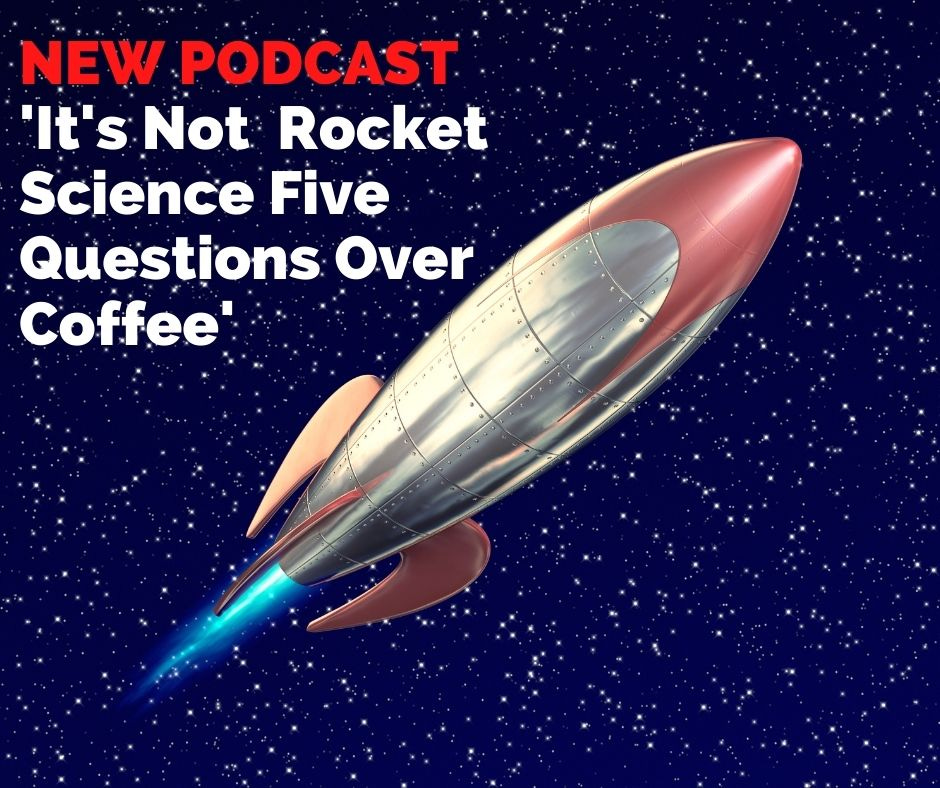Who is Sean?
Sean Courtney is a creative problem solver who believes in bespoke solutions for individuals and businesses. As a dyslexic, Sean struggled with call center scripts and created a guided call guide that helped him flow through calls smoothly. This innovation helped him pass his audits and grow his potential in the business, leading to many promotions. Sean's focus is on creating bespoke solutions to help unlock the superpowers within the neurodiverse community.
Key Takeaways
[00:02:34] Improved call guide reduces anxiety, improves performance.
[00:05:50] Diversity advocates, unmasked, ADHD book, Dyslexia fonts.
[00:09:32] Simple and cost-effective solutions for inclusivity.
[00:11:26] Subscribe to our newsletter and podcast.
Valuable Free Resource or Action
www.missing-piece.uk
A video version of this podcast is available on YouTube :
https://youtube.com/live/qfYZRdZxgVU?feature=share
_________________________________________________________________________________________________
Subscribe to our newsletter and get details of when we are doing these interviews live at https://TCA.fyi/newsletter
Find out more about being a guest at : link.thecompleteapproach.co.uk/beaguest
Subscribe to the podcast at https://link.thecompleteapproach.co.uk/podcast
Help us get this podcast in front of as many people as possible. Leave a nice five-star review at apple podcasts : https://link.thecompleteapproach.co.uk/apple-podcasts and on YouTube : https://link.thecompleteapproach.co.uk/Itsnotrocketscienceatyt!
Here's how you can bring your business to THE next level:
If you are a business owner currently turning over £/$10K - £/$50K per month and want to grow to £/$100K - £/$500k per month download my free resource on everything you need to grow your business on a single page :
It's a detailed breakdown of how you can grow your business to 7-figures in a smart and sustainable way
————————————————————————————————————————————-
Transcript
Note, this was transcribed using a transcription software and may not reflect the exact words used in the podcast)
SUMMARY KEYWORDS
Inclusion, diversity, neurodiverse employees, keynote speeches, team leaders, social anxiety, structured environment, call centers, newsletter, podcast, Sean, positive feedback, bespoke solutions, dyslexia, call guide, superpowers, self-esteem, outside the box, cost-effective solutions, simple solutions, coaching course, productivity, longevity, missing peace, coffee, inclusivity, diversity within websites, fonts, colors, tools, empowering, unlocking potential.
SPEAKERS
Sean Courtney, Stuart Webb
Stuart Webb [00:00:22]:
Hi, and welcome back to It's Not Rocket Science. My questions over coffee. I have my coffee muki in front of me which has got coffee in it. I need that coffee mind at the moment. And I'm here with Sean Courtney. Sean is neurodiverse. He is really trying to help drive the inclusivity and options for people who have got diversity. Sean, I'm really grateful to have you on the podcast. I love the fact that you're empowering diversity and unlocking potential. So welcome to it's not rocket science. Five questions over coffee.
Sean Courtney [00:00:56]:
Amazing. Thank you very much for having me. It's a pleasure to be here.
Stuart Webb [00:00:59]:
Brilliant stuff. Look, sure. Talk to us a little bit about how you do help those customers of yours and unlock that wonderful potential.
Sean Courtney [00:01:09]:
Yeah, perfectly. So, I mean, the first thing I started to realize is that one size doesn't fit all. So what I do is I create bespoke creative solutions for the individual or within a team based solution if it is working within a business. One of the things I've created was known as a guided call guide. The Dyslexic myself, I struggled when I was working in call centers to follow the standard script that they give you. So I created a guided call guide which allowed me to understand when I needed to pause, when I needed to allow the customer to speak. And after a while, that call guide allowed me to flow through the call really well and signed. But I start to pass my audits, which made my potential within the business grow, making it more possible for me to be promoted within the business. So, yeah, just bespoke solutions that really like to release the superpowers, I call it, within the neurodiverse community.
Stuart Webb [00:02:12]:
I absolutely love that. I love the fact that you were able to do that and I know there must be a bunch of people who struggle with that. So do you find you now find yourself in situations where you are able to get in front of those sort of customers and help them to do exactly that? What things have they done that you're able to sort of spot and help them with?
Sean Courtney [00:02:34]:
Yeah. So there's a couple of examples there. So one of the things that I've done is I've worked with a young lad that's working in the call center at the moment, struggling to sort of pass his audits. They got to go through the same sort of disciplinary action as anybody else would need to. Reached out, had a look at his call guide, and by making the call guide more of a structure, so it's a more of a flow guide, if you will, in order to follow it made it easier for him to understand what he was doing. There was a section that is just literally introduction and it takes all the way through to the end of the call in the sense of the call guide itself. It's also color coded. So rather than having to remember where he is in the particular call guide, if somebody was to say, I'm sorry, what was that? He said, you only have to remember the color, which makes it easier for him to pick up where they left off and it doesn't send them into sort of a panic situation and start to cause things like telephone anxiety and kicking off anxiety. That makes it very difficult for them to continue the call, so it makes it more controlled and puts the power back in their hands in order to be able to do their job more effectively.
Stuart Webb [00:03:46]:
Sean, I absolutely love that. I think that's brilliant. And if we can't find more call centers out there that needs advice from people like you, I don't know what we're all doing wrong. Sean, listen, tell me you've got a great website. What advice do you put on your website? And I'm going to put the website now for people to have a look, which is missingpeace. UK, what sort of advice do you have on that website which you think would be valuable for the audience to know about?
Sean Courtney [00:04:18]:
I think the thing to take from the website is the website is a bit of more of a journey, so it introduces what it is that I do, and the idea is to increase self esteem. The idea is to take that self doubt and stick it in a box and put it away. As a neurodiverse person myself, I'm literally sort of wired to think outside the box and that is exactly what my website is promoting. I've been in many corporate meetings with many managers who said, look, we need some solutions and we need you to think outside the box. The neurodiverse community do that without even thinking. That is exactly what they're wired to do. So some of the creative solutions that I come up with are based on the fact that I am neurodiverse and I think that's what my website promotes. There's some great information on how to get in contact with me so we can have a chat. And I think it's a nice, simple, to the point, straightforward, structured website for you to have a look at and see what it is that I do, how I promote my business and what is on offer should you need my help.
Stuart Webb [00:05:21]:
Brilliant stuff. Brilliant. Sean, you've given us a short history there of your own journey, but there must be other courses or books or other things that you would like us to be able to know about in order to help explain both diversity and your own journey. So what would you advise for people to sort of understand or read or get to know better?
Sean Courtney [00:05:50]:
There's many different people out there that are really sort of flying the flag for diversity. Some of the people that are on sort of LinkedIn and Facebook include Ellie Middleton. She has amazing little unmasked. It's called Unmasked and they send you a little leaflet out where you can read about what it is that she does. A little PDF, a book that I helped, that helped my colleague who's ADHD was a book from Leanne Mascara called ADHD A to Z. What an amazing book that was. I got that on Audible just purely because of how my Dyslexia works. Sometimes one of the things I would research are Dyslexic fonts. Some people don't realize that there is an open Dyslexia font which is easier for people like myself to read because the letters are weighted at the bottom and they're slightly moved apart. That's not the only font that will help you with Dyslexia, obviously. There's comic stands as well. All these fonts are available but never really used. And sometimes it can make the difference between having to take somebody to one side and explain what it is that you want them to do when you're giving out a form at work or literally giving them the update. Or the sheet that you want them to understand and allowing them to just pick it up and ask the same questions anybody else would.
Stuart Webb [00:07:15]:
I think that's really valuable advice, actually, Sean, I must admit, I've seen now there are some people who are beginning to think about diversity within their websites in terms of changing fonts, changing colors, allowing people to sort of use rulers and things like that in order to sort of allow them to focus on one line or one section at a time without being distracted by a lot of things around on the website. So people are becoming aware of this, but you're right, there's not nearly enough known, not enough thought, not enough consideration for how to make these things more widely available so that everybody's included. And I know that inclusion is one of the important things that you think about in the way that you're doing work within the Missing Piece.
Sean Courtney [00:08:00]:
Absolutely, yeah. Inclusion is key. I mean, that's the thing that Missing Piece is setting up to change. I want the inclusion to be the main message. We're going into businesses and starting to do keynote speeches is something I'm bringing Missing Piece into. So I'm hoping to go into as many businesses as I can and do some talks on diversity and inclusiveness because once it starts at the top and works your way down, it doesn't become such an awkward subject. It's nice and simple to kind of teach the team leaders and teach the team and understand that okay, you may have somebody in the industry that you're working with that may be neurodiverse. It just means that they do things. A little simpler example would be maybe start 15 minutes early to avoid any social anxiety. Finish 15 minutes early to avoid the same thing. Give them a set place to sit in order to allow them to have that structure in place. And that sort of works really well for them. But unfortunately, sometimes that's missed when you have call centers, that hot seat.
Stuart Webb [00:09:10]:
Brilliant stuff, Sean. Look, I spent the last few minutes asking you questions and you're probably wondering when I'm going to get to the important one that I haven't asked. So I'm now going to give you that opportunity to tell me the question that I should have asked you and then obviously you get the pleasure of answering the question that I should have asked you. So what's that important question that I should have asked that I haven't yet?
Sean Courtney [00:09:32]:
I guess the most important question that you haven't asked yet is what is a simple solution and what is cost effective? There's a lot of things that are cost effective within this simple changes. What missing piece is trying to promote is that businesses don't have to break the budget in order to make sure that they're being inclusive. The chances are they're already doing it. That just needs tweaking. It's just making sure that if we work together that we are creating changes that are going to be implemented. It's a little bit like anything, you go and do a coaching course and you take all that information. If you don't implement it, nothing's going to change. Phil M. Jones once said that knowledge isn't power. The implementation of that knowledge is power and that's what makes the difference. You can have all the knowledge in the world. So when we go out and we do keynote speeches and we talk about how things can change and what you need to do, it's important that people implement those changes because they're going to make the world of the difference. Not just for your business, because you're going to increase the productivity of these individuals within the industry, but also for the longevity of the staff within the business.
Stuart Webb [00:11:01]:
Brilliant stuff, Sean. Thank you so much for being here for just a few minutes and talking about that. I think it's such an important object and I think you're doing a great job to promote it. I'm hoping that we're going to get you a lot more people following you because of your appearance here on It's Not Rocket Science Five Questions Over Coffee. So thank you for spending a few.
Sean Courtney [00:11:19]:
Minutes with us and thanks for having me. It's been an absolute pleasure and no problem. Thank you again. Thank you so much.
Stuart Webb [00:11:26]:
Look, everybody, I'd just like you to subscribe to our newsletter because that's how we can get to tell you about some of the great guests that we've got coming up on this podcast. So go on to the link that you can see on the bottom of the stage that's link thecompletroach Co UK newsletter and of course, like and subscribe to the podcast and tell all your friends about how you get to hear about great people. I know, I know lots of comments from people about some of the great guests we've had, like Sean who are bringing you really interesting comments and discussion points that business owners need to know about today. So get onto the website, link thecomplete Approach Co UK newsletter. Subscribe to the newsletter, you'll get an email from me about once a week just telling you who's coming up, what they're going to be talking about, and you get on and help to promote their businesses and connect with them on LinkedIn. Sean, thank you so much for being with us. Really appreciate you spending a few minutes. I know you've got a great topic to talk about here, so let's hope that we hear more businesses who are listening to what you've got to say about it.
Sean Courtney [00:12:28]:
Amazing. Thank you so much.
Stuart Webb [00:12:29]:
No problem.











Share this post